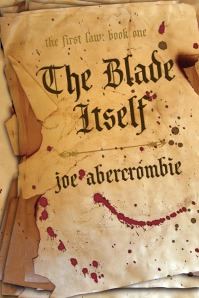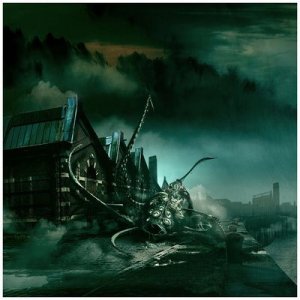It was a struggle, it was a slog. I haven’t wanted to talk about it until now, and I still don’t, really. Suffice it to say I finished Memories of Ice and did not pick up Malazan, Book 4. I may one day, but not now.
 I quickly grabbed one of the books I’ve really been wanting to read but waiting on my wife to finish. Well, after several months of her being on page 6 or so, I decided it was safe to take it for a few weeks. The Help, by Kathryn Stockett was probably the best book I’ve read so far this year. I’m still not much in the mood to write about books, but this one was really, really good. It was a conversation starter at the gym when I was reading it on the bicycle. It gave me pause for though often. But most of all it made me remember, fondly and sadly, Bernice. How I wish I would have been able to know her both as the child I was and now as the adult I am. I really think we could have had some amazing conversations about life, faith, God, and raising a family. I cried near end of this book. The last book to actually make me cry was The Kite Runner.
I quickly grabbed one of the books I’ve really been wanting to read but waiting on my wife to finish. Well, after several months of her being on page 6 or so, I decided it was safe to take it for a few weeks. The Help, by Kathryn Stockett was probably the best book I’ve read so far this year. I’m still not much in the mood to write about books, but this one was really, really good. It was a conversation starter at the gym when I was reading it on the bicycle. It gave me pause for though often. But most of all it made me remember, fondly and sadly, Bernice. How I wish I would have been able to know her both as the child I was and now as the adult I am. I really think we could have had some amazing conversations about life, faith, God, and raising a family. I cried near end of this book. The last book to actually make me cry was The Kite Runner.
Having finished that book in record time after the several months it took me to finally be done with Memories of Ice, I grabbed another book I’ve been meaning to read that I knew I could also read quickly and get again that jolt of satisfaction that comes from finishing a book. I grabbed Stephen King’s Rose Madder.

I’ve known for a while that this is one of King’s least regarded works, but it was on my shelf and I wanted to read it anyway. The subject matter of a picture having supernatural qualities intrigued me. It didn’t disappoint, but neither was it earth shattering. Actually, without any of the supernatural stuff, I thought he wrote a damn compelling story about spousal abuse. On the list of evils, that one’s up there. The story ended in a slightly unsatisfactory way for me, but what can you do. It was a good read. Even if I’ve read better King, this was the best book I’ve read about spousal abuse (actually, it may be the only one, but that doesn’t matter really).
 Following that, I forged ahead, borrowing on my e-reader a book from the library that I’d heard about over the summer and been wanting to read. Miss Peregrine’s Home for Peculiar Children. Billed as a young adult book, it certainly is not. Neither in theme nor content, at least in my opinion. The author, Ransom Riggs, made clever use (I thought) of a bunch of old photographs to draw out and illustrate his story. My guess is the story came after he saw the pictures and not the other way around, but who knows. Some parts of it were bit too like Harry Potter but not most of it. It was a neat story about difference and hatred, and about what makes a person unique and special. A fun, quick read – I’d recommend it.
Following that, I forged ahead, borrowing on my e-reader a book from the library that I’d heard about over the summer and been wanting to read. Miss Peregrine’s Home for Peculiar Children. Billed as a young adult book, it certainly is not. Neither in theme nor content, at least in my opinion. The author, Ransom Riggs, made clever use (I thought) of a bunch of old photographs to draw out and illustrate his story. My guess is the story came after he saw the pictures and not the other way around, but who knows. Some parts of it were bit too like Harry Potter but not most of it. It was a neat story about difference and hatred, and about what makes a person unique and special. A fun, quick read – I’d recommend it.

And now, I’m afraid, I’ve started another death march. Depending, I may start another book to read along with Roberto Bolano’s magnum opus and ultimate work, 2666. I’ve never read Bolano before, but I’ve been told to, many times by people who’s opinions I trust. I take it that both in style and substance, it’s a challenging read. So, far, and I’m barely into it, it’s not all that exciting. Enough people say it is great though, truly great, to make me continue. So, until I finish it, or until I come across some inspiring quote or another, fare well.





 Sometimes it is a hard decision to pick what I’ll read next but this was easy. So, the obvious trend is horror stories. The less immediately obvious connection between the Lovecraft and Duma Key is that they are both written in the first person. I find that this perspective lends itself particularly well to horror stories – it lends a crucial air of credibility to the story; it is much easier to discount something from a third person perspective.
Sometimes it is a hard decision to pick what I’ll read next but this was easy. So, the obvious trend is horror stories. The less immediately obvious connection between the Lovecraft and Duma Key is that they are both written in the first person. I find that this perspective lends itself particularly well to horror stories – it lends a crucial air of credibility to the story; it is much easier to discount something from a third person perspective.